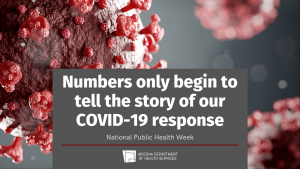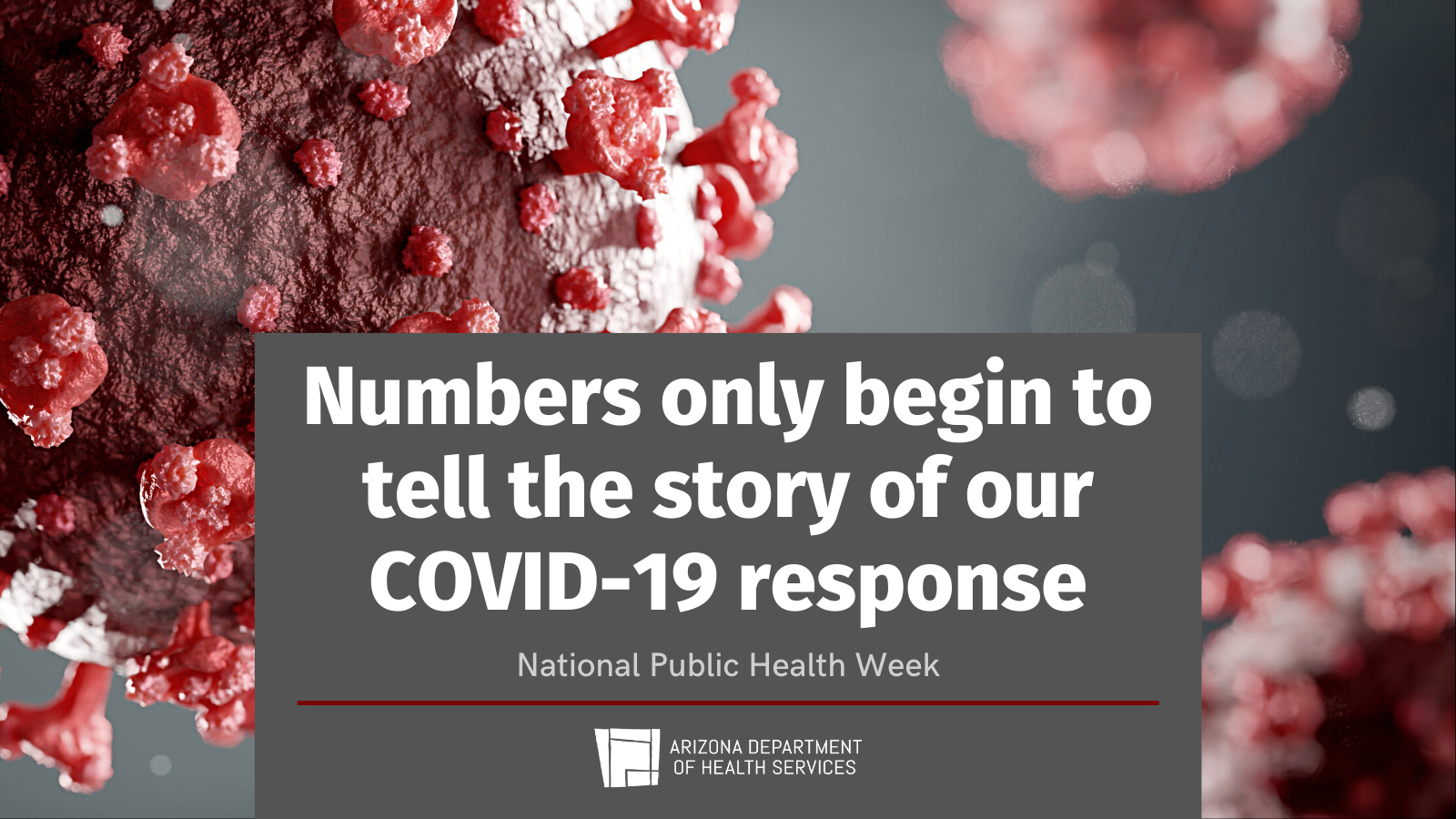 It’s impossible to mark National Public Health Week without acknowledging the efforts of the ADHS staff during the COVID-19 pandemic. Over the past 27 months, hundreds of public health professionals across all ADHS programs have spent more than 250,000 hours supporting our health emergency operations center, our partners, and all of Arizona.
It’s impossible to mark National Public Health Week without acknowledging the efforts of the ADHS staff during the COVID-19 pandemic. Over the past 27 months, hundreds of public health professionals across all ADHS programs have spent more than 250,000 hours supporting our health emergency operations center, our partners, and all of Arizona.
Here are just some of the numbers that tell this story:
- 19 million COVID-19 tests, provided at health care providers, in the community, and in Arizona schools, including a drive-up testing facility at the Arizona State Laboratory and testing blitzes with community partners.
- More than 5 million doses of life-saving vaccines administered, including 1.6 million doses at state-run sites, supported by allocation protocols, formulas, and tools developed to manage limited supplies.
- More than 12,000 calls for help and more than 8,100 COVID-19 patients transferred to higher levels of care through the Arizona Surge Line.
- More than 120 ADHS infection control assessments to support infection control and safety in healthcare and congregate living facilities.
- Nearly 70 million pieces of personal protective equipment provided to healthcare providers and frontline workers.
- 1,126 patients benefited from a first-of-its-kind isolation alternate care site program that secured beds for COVID-19 positive patients eligible for hospital discharge.
- More than 800,000 hours of staffing time provided to Arizona hospitals through multiple surges.
- Nearly $1 billion in funding coordinated for local health departments and community partners through grant management, contract development, subrecipient monitoring, support, and payment.
- Dozens of administrative orders reviewed, drafted, communicated, and implemented by ADHS employees ensured the continued operation of Arizona’s health care system.
- Countless social media posts, news releases, blogs, webpages, events, and other communications to make sure Arizonans have had the information they need.
Nonstop coordination with local health departments and community partners drove every part of this effort, while ADHS employees assisted as the State Disaster Medical Advisory Committee (SDMAC) and Arizona Vaccine and Antiviral Prioritization Committee (VAPAC) made decisions critical to the state’s COVID-19 response.
The ADHS in-house laboratory increased its capacity for multiple COVID-19 testing platforms, all the while continuing ongoing responsibilities such as blood tests on the approximately 80,000 babies born in Arizona every year.
ADHS developed a new surveillance system and automated reporting to assist healthcare and laboratory professionals in their work. An online dashboard allowed Arizonans to check the daily number of cases statewide and in their county to provide the latest information.
ADHS employees provided clinical expertise and support for providers across Arizona as the therapeutic response to COVID-19 advanced from Remdesivir to monoclonal antibody and antiviral products. Others provided consultation, technical assistance, and guidance to licensed facilities and providers facing unprecedented circumstances.
COVID-19 is not gone, and we continue our mission of protecting Arizonans. Nearly 30,000 Arizonans have died during this global pandemic, including members of our ADHS family. There have been more than 2 million cases in our state. We grieve for everyone harmed by this pandemic.
Our focus going forward includes health equity, vaccination, testing, contact tracing and case investigation, communicating public health recommendations, distributing supplies, disease surveillance, disbursing funding, infection control technical assistance, and partner collaboration.
Along with local public health, front-line and health care workers, and so many others, ADHS employees have put aside vacations, time with family and friends, and, too often, sleep, to help save lives of Arizonans. As I noted last week, it’s been a solemn privilege to be in public health at this time, and that commitment continues.
I hope you will join me in recognizing all that these professionals, at ADHS and elsewhere, have done for the common good during this challenging time.










